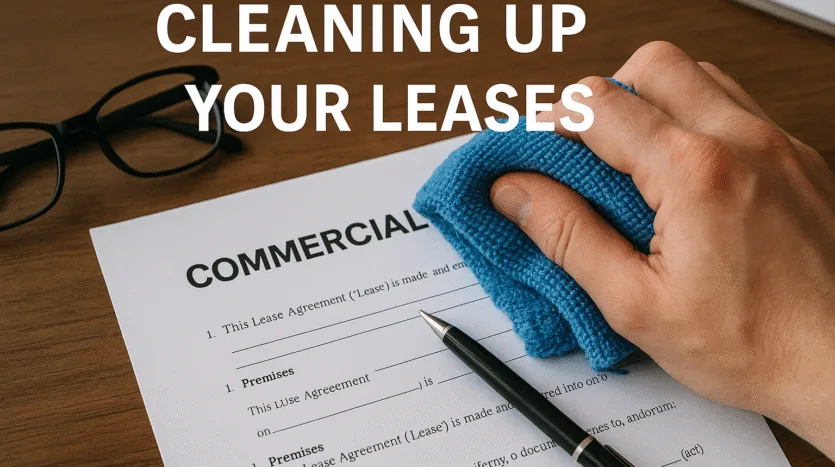The Problem with “It’s Worked Fine So Far”
Let’s be honest: many landlords, especially long-time owners or mom-and-pop operators, are still using lease templates they’ve had for years — sometimes decades. Maybe they’ve been passed down from a previous owner, pulled from an online template, or just reused because “they’ve always worked.”
Here’s the reality: just because a lease hasn’t caused a problem yet doesn’t mean it won’t. Outdated leases often contain:
-
Typos and unclear language
-
Missing clauses that protect you as a landlord
-
Terms that are no longer enforceable under current laws
-
Ambiguity that creates loopholes for disputes
When something goes wrong — a late rent payment, property damage, or a disagreement over responsibilities — you need a strong lease to fall back on. If yours doesn’t cover the situation clearly, you could find yourself in legal trouble, out-of-pocket for costs you can’t recover, or even in a lawsuit you can’t win.
Why Lease Updates Matter — Even If You’re Not Selling
You might think this only becomes important if you’re looking to sell your property. Not true.
Yes, sloppy leases will hurt your property’s appeal and value when it hits the market. Any serious buyer will dig into the lease agreements, and if they’re outdated or vague, it signals risk — risk they’ll price into their offer.
But even if you’re holding long-term, clean, modern leases protect your cash flow, enforce your rights, and give you peace of mind. They’re foundational to your asset’s stability and long-term profitability.
The Solution: Invest in Professional Lease Drafting
The good news is, fixing this issue isn’t complicated. It starts with hiring an experienced real estate attorney to draft a new lease that:
-
Reflects current laws and local regulations
-
Accounts for modern property management practices
-
Addresses things like technology access, maintenance expectations, and cost-sharing clearly
-
Protects both you and your tenants
Yes, it might mean legal fees upfront, but the return on that investment is substantial — fewer disputes, stronger tenant relationships, and more attractive terms for lenders or future buyers.
What About Tenant Pushback?
Some landlords worry that a long, detailed lease will scare off tenants. But the truth is, a thorough lease is just as valuable to your tenants as it is to you. It outlines expectations, clarifies responsibilities, and provides a roadmap for what to do when things don’t go as planned.
Sure, tenants may grumble at a 30- or 40-page document — especially if they’re used to a 5-page form. But a well-written lease helps everyone avoid headaches down the road.
Make the Transition Gradually
You don’t have to rewrite every lease at once. Start updating them as they come up for renewal. It’s a manageable, phased approach that won’t overwhelm you or your tenants — and over time, your entire property portfolio will be on stronger legal footing.
Each updated lease is a step toward greater stability and value.
The Bottom Line: Leases Drive Value
Commercial real estate is valued largely based on the income it generates. And that income is governed by your leases. If those leases are weak, outdated, or incomplete, you’re leaving money on the table and increasing your exposure to risk.
So, take a hard look at the leases governing your property. Are they doing their job? Are they protecting you? Are they setting you and your tenants up for success?
If not, it’s time to clean them up. It may not be exciting work, but it’s some of the most important work you can do as a property owner.
Let’s Get Started
If you’re unsure where to begin or want personalized guidance on cleaning up your leases and maximizing your property’s value, I’m here to help. Together, we can make sure your investment is protected, efficient, and ready for whatever comes next.
Because in commercial real estate, strong leases mean a stronger future.


